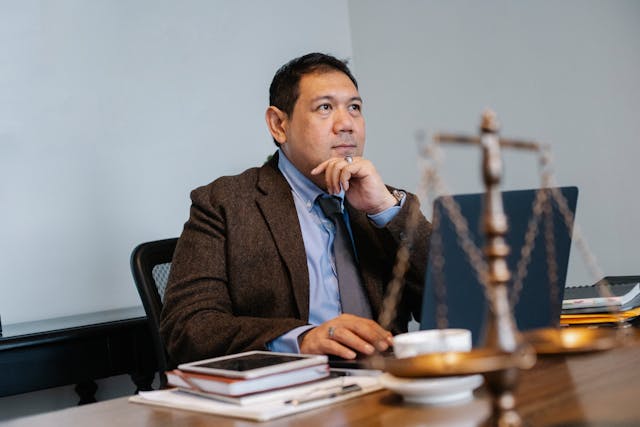Losing a loved one is an excruciating experience. When that loss is due to another party’s negligence or intentional harm, it compounds the pain. In such tragic circumstances, families often seek legal recourse through wrongful death claims. These legal actions aim to provide some justice and financial compensation for the survivors left behind.
In this article, we’ll explore the common damages sought in wrongful death cases, clarify the compensation available, etc.
Common Damages in Wrongful Death Cases
Damages in wrongful death cases can be divided into two broad categories: economic and non-economic.
Economic Damages
As the name gives out, economic damages refer to financial losses incurred due to the victim’s death by someone’s negligence. These damages are aimed at compensating the surviving family members for the tangible financial impact of losing their loved one. Here are some common types of economic damages claimed in wrongful death cases:
Loss of Financial Support
One of the primary components of economic damages in a wrongful death case is the loss of financial support. This typically includes the deceased’s income, including future earnings that the deceased would have provided to their family members had they survived.
Calculating the loss of financial support requires a thorough assessment of the deceased’s earning capacity, employment history, and future earning potential. Factors such as age, occupation, education, etc., determine the extent of the financial support that would have been provided.
Consider the example of a Colorado Springs mother who reached a settlement of around $2.8 million for her son’s wrongful death. According to 11 News, Kathleen Boleyn wrongfully lost her son, Johnny Hurley, at the hands of the police department.
He was shopping at a store in Olde Town Arvada when he heard gunshots outside. He went outside with his gun in his hand and was able to bring down the shooter. However, he was shot by an officer moments later.
Johnny was a young man with great earning potential. He could have even helped her mom, who relied on him financially.
Medical and Funeral Expenses
Medical and funeral expenses are incurred as a direct result of the incident leading to the individual’s death. These expenses are considered tangible losses that can be quantified and directly attributed to another party’s wrongful act or negligence.
Medical expenses encompass a wide range of costs, including hospital bills, doctor’s fees, medication expenses, etc., incurred from injury until the individual’s passing. These expenses are typically documented through medical records, bills, and receipts, providing clear evidence of the financial burden.
Funeral expenses represent the costs associated with laying the deceased to rest. This could include funeral home services, cremation or burial expenses, body transportation, etc. These expenses can quickly accumulate and place a significant financial strain on the surviving family members.
Therefore, Springs Law Group advises that it is best to consult with a local attorney if anything like this happens. The lawyer or law firm will represent you throughout the legal procedure and help you get justice. Moreover, the lawyer can help you negotiate with the responsible party to get you the best compensation.
Consider the above example of Kathleen Boleyn. In such a case, she had to go up against the city’s police department for the claims. So, she certainly would have received some counteroffer in smaller amounts. Lawyers are skilled and educated to negotiate in such instances to get you a good amount. Thus, having a Colorado Springs personal injury attorney could help.

Non-Economic Damages
Like economic damages, the victim’s family can face several other challenges. These are compensated in the form of non-economic damages and include:
Pain and Suffering
Pain and suffering are complex elements to consider when determining non-economic damages. Unlike economic damages, non-economic damages are less tangible and more subjective. Pain and suffering encompass the physical and emotional distress experienced by the deceased before death and their family.
For instance, a family filed a wrongful death lawsuit against Air Force Academy. According to KRDO, Cailin Foster committed suicide in 2021. Her parents, Gary and Colleen Foster, did some investigation and found that she faced sexual assault. The lawsuit alleges that the academy failed to address her sexual assault claims and mental health.
This would have put a lot of stress on the victim’s mind and now on her parent’s mental peace. These are the pain and suffering the several victims have to face.
Loss of Companionship and Consortium
Loss of companionship refers to the emotional bond, affection, and shared experiences of family members with the deceased. It encompasses the void left behind by the absence of the deceased’s presence in their lives. This loss can deeply impact spouses, children, parents, and other close relatives who rely on the deceased for emotional support and companionship.
On the other hand, the consortium extends beyond emotional connections to include the loss of services, assistance, and contributions that the deceased provided. This can include household chores, childcare, financial support, and other forms of tangible assistance.
For example, a Colorado Springs man died when the emergency response team physically restrained him. As stated by CPR, Kevin Dizmang had a mental health episode. His family called 911 for help. The officers that arrived put him in a chokehold while handcuffed. As a result, he died, and the family filed a federal suit.
Since Kevin Dizmang was 63 years old, he might not have been working or would have continued to do so for a long time. However, he could have been a part of household chores. This accounts for the loss of consortium.
Frequently Asked Questions
How Is the Value of a Wrongful Death Claim Determined?
The value of a wrongful death claim depends on various factors. This can include the deceased’s age, earning capacity, life expectancy, the circumstances of the death, and more. Economic damages, such as lost income and expenses, can be calculated more precisely. In contrast, non-economic damages, such as pain and suffering, are more subjective and may vary depending on the jurisdiction.
Can I File a Wrongful Death Claim if the Responsible Party Was Acquitted in Criminal Court?
Yes, you can still file a wrongful death claim even if the responsible party was acquitted in criminal court. Civil and criminal cases are separate legal proceedings, and the burden of proof is lower in civil cases. Therefore, even if the defendant was not found guilty in criminal court, you may still prove liability in a wrongful death lawsuit.
Do I Need an Attorney to File a Wrongful Death Claim?
You can file a claim without the need for an attorney. However, it is advised that you seek their help to leverage their expertise. These cases can be complex, and having legal representation can help protect your rights. It also helps receive the maximum compensation available under the law.
To conclude, wrongful death cases are among the most emotionally challenging and legally complex areas of civil litigation. Understanding the types of damages and how to pursue a claim can provide clarity and empowerment for grieving families.












Leave a Reply